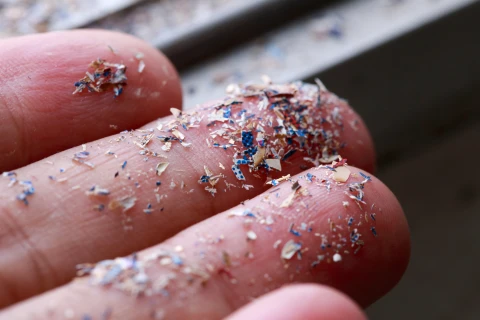

Microplastic have been detected in human blood for the first time ever, giving cause for serious concern over the danger that they pose to health.
<p>
Tiny plastic particles called Microplastic have been detected in human blood for the first time ever, giving cause for serious concern over the danger that they pose to health.&nbsp;</p>
<p>
Scientists from the Netherlands analysed blood samples from 22 anonymous donors, all healthy adults and found plastic particles in 17. Half the samples contained PET plastic, which is commonly used in drinks bottles, while a third contained polystyrene, used for packaging food and other products. A quarter of the blood samples contained polyethylene, from which plastic carrier bags are made.</p>
<p>
According to the researchers, plastic particles can enter the human body through food and drink as well from air. Microplastic is the term for tiny plastic particles of 5 mm or less.&nbsp;</p>
<p>
&ldquo;Our study is the first indication that we have polymer particles in our blood &ndash; it&rsquo;s a breakthrough result,&rdquo; The Guardian cited Prof Dick Vethaak, an ecotoxicologist at Vrije Universiteit Amsterdam in the Netherlands, as saying.</p>
<p>
<iframe allow="accelerometer; autoplay; clipboard-write; encrypted-media; gyroscope; picture-in-picture" allowfullscreen="" frameborder="0" height="315" src="https://www.youtube.com/embed/vBA5KZU2IuE" title="YouTube video player" width="560"></iframe></p>
<p>
&ldquo;But we have to extend the research and increase the sample sizes, the number of polymers assessed, etc.&rdquo; Further studies by a number of groups are already under way, he said.</p>
<p>
The research paper has been published in the journal Environment International</p>
<p>
According to the study, it remains to be determined whether plastic particles are present in the plasma or are carried by specific cell types. If plastic particles present in the bloodstream are indeed being carried by immune cells, the question also arises, can such exposures potentially affect immune regulation or the predisposition to diseases with an immunological base?</p>
<p>
The new research was funded by the Dutch National Organisation for Health Research and Development and Common Seas, a social enterprise working to reduce plastic pollution.</p>
<p>
<strong>Also read:</strong>&nbsp; <a href="https://www.indianarrative.com/health-news/israel-detects-new-codi-variant-157741.html">Israel detects new Covid-19 variant</a></p>
The India-UK Free Trade Agreement, signed by Prime Minister Narendra Modi and UK Prime Minister…
The Ministry of Health and Family Welfare has achieved a major milestone in women's health,…
Chief of Army Staff General Upendra Dwivedi on Saturday addressed the Kargil Vijay Diwas celebrations…
Chief of Defence Staff General Anil Chauhan on Saturday paid heartfelt tribute to the brave…
Israeli Prime Minister Benjamin Netanyahu on Friday said that Israel and the United States are…
Both Cambodia and Thailand have written to the United Nations Security Council (UNSC) following two…